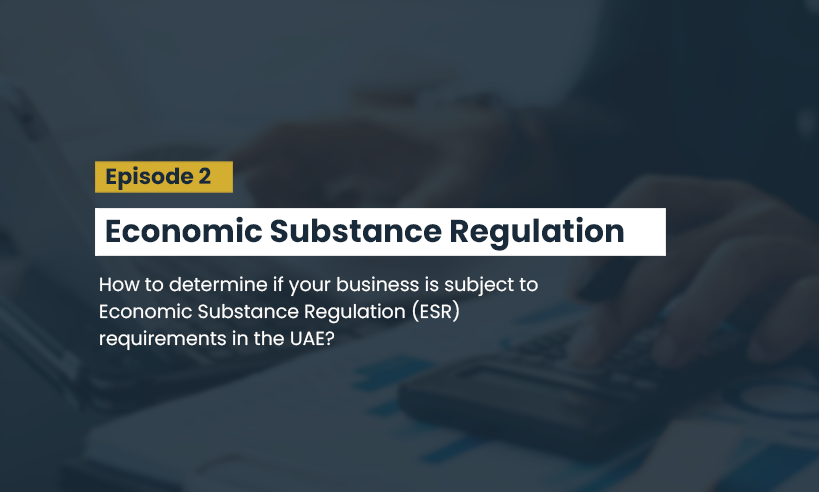How to determine if your business is subject to Economic Substance Regulation (ESR) requirements in the UAE?
As the deadline for Economic Substance Regulation (ESR) compliance approaches in the UAE, businesses must ensure they understand if they fall under the scope of the regulation. ESR requires businesses in certain sectors to demonstrate economic substance in the UAE, and failure to comply could result in significant penalties. In this article, we will explain how to determine if your business is subject to ESR requirements in the UAE.
Determine if your business falls within the scope of ESR: ESR applies to businesses that undertake “relevant activities,” including banking, insurance, intellectual property, shipping, and holding company activities. Review your business activities to determine if they fall under any of the relevant activities outlined in the regulation.
Assess the level of activity conducted in the UAE: If your business engages in relevant activities, the next step is to determine if there is sufficient economic substance in the UAE. This involves assessing the level of activity, assets, and employees based in the UAE.
Identify if your business is a “Licensee”: ESR requirements apply to businesses that are licensed in the UAE, including free zone entities. If your business holds a license to operate in the UAE, it is likely subject to ESR requirements.
Determine if your business is exempt: Certain entities are exempt from ESR requirements, including entities that are tax-resident outside the UAE, and those that are wholly owned by UAE residents. Review the regulation to determine if your business qualifies for an exemption.
In conclusion, determining if your business is subject to ESR requirements in the UAE requires a thorough review of the regulation, your business activities, and presence in the UAE. If you are unsure about whether your business is compliant with ESR regulations, seek advice from a qualified professional to avoid penalties and ensure compliance before the June deadline.
Disclaimer: The information provided in this article is for general informational purposes only and should not be considered legal or professional advice.
